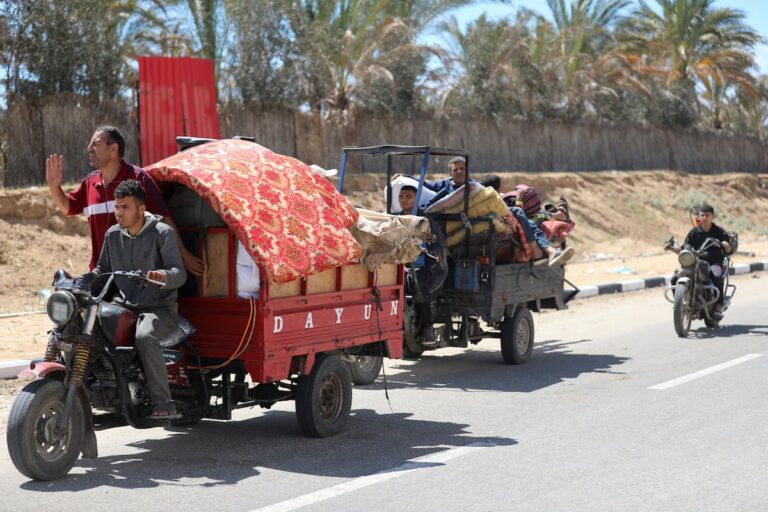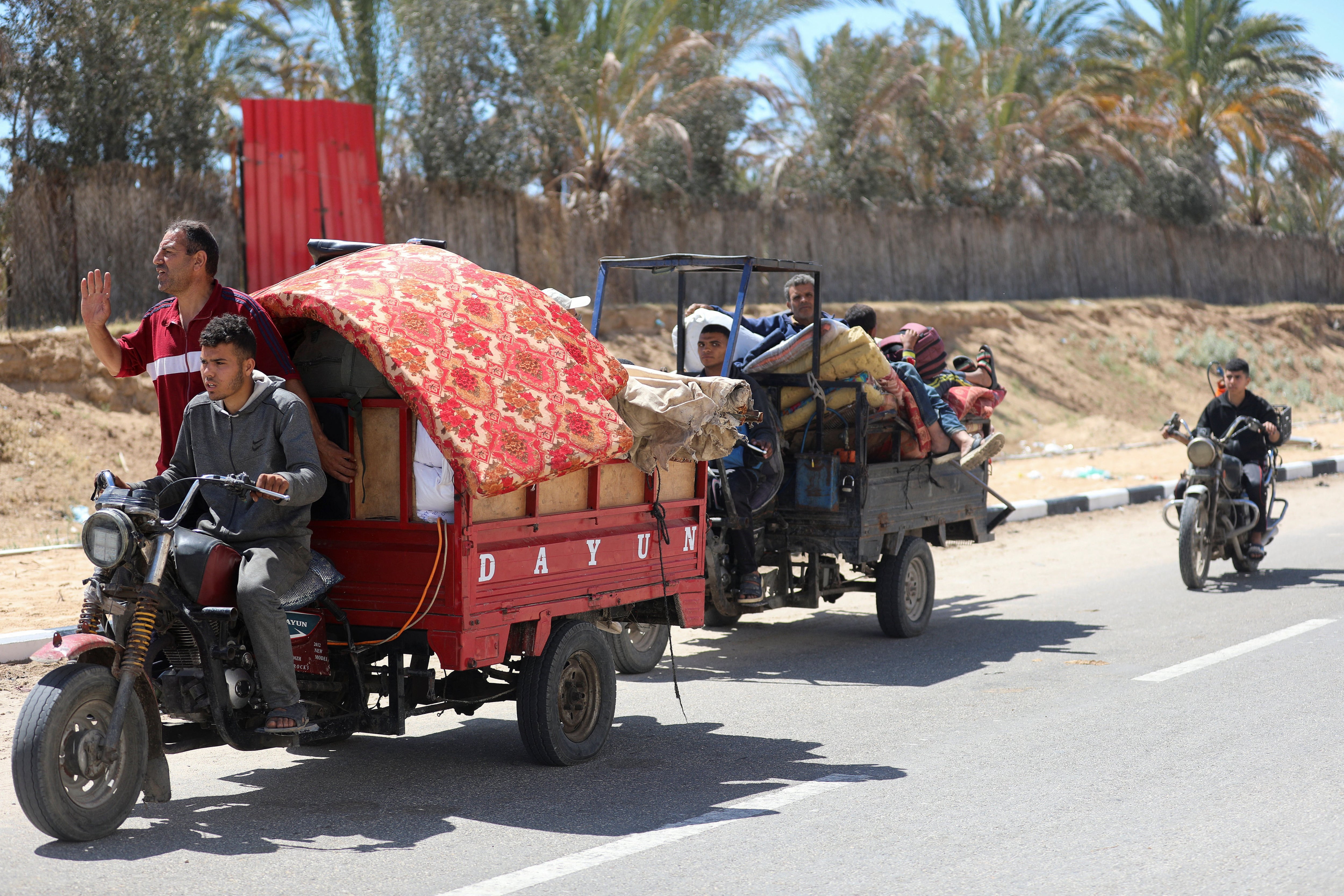Egypt redoubled its efforts this Monday to prevent the complete derailment of ceasefire negotiations between Israel and Hamas and to stem the deterioration of the situation caused by the first forced eviction orders issued by the Israeli army against part of the population of Rafah, Gaza's southernmost city. Cairo, one of the most critical voices against an Israeli ground attack on the Palestinian city due to the political, security and humanitarian implications it could entail, has raised the alert level of its army in the area near the Gaza Strip border before the possibility of an attack ultimately being carried out.
In a statement issued this afternoon, Egypt's Foreign Ministry asked Israel to act “with maximum restraint” and avoid a new escalation at an “extremely delicate” moment in the ceasefire negotiation process. He also stated that Cairo remains “in permanent contact” with all parties to prevent the situation from “deteriorating or getting out of control.” Al Qahera News, a local television station close to the intelligence services, had recently reported, citing an unnamed senior official, that Egypt has asked Israel and Hamas to “return to negotiations” to ensure the “important progress” made has been booked in the past period, days to be saved.
Late afternoon, The head of Hamas's political bureau, Ismail Haniya has informed Qatar's Prime Minister Mohamed bin Abdulrahman Al Thani and the head of Egypt's intelligence agency, Abbas Kamel, that the movement has approved the proposed ceasefire agreement in recent days, according to a statement. And Al Qahera News has reported that a delegation from the Islamist movement plans to travel to Cairo on Tuesday to conclude negotiations, although the intentions of Israel, which has said it is studying Hamas' statement, are unclear. In a post on social media late Monday afternoon, Egyptian President Abdel Fattah al-Sisi said he was following “the positive developments” in the ongoing negotiations and called on all parties to redouble their efforts to reach an agreement.
After a period of deadlock in mediation efforts between Israel and Hamas, the Egyptian authorities have decided Two weeks ago they managed to unravel the situation and give new impetus to the process with a new proposal. first discussed with their Israeli counterparts and then presented to Hamas. A delegation from the Palestinian movement left Cairo on Sunday after a new round of contacts over the weekend, during which optimistic reports about the possibility of reaching an agreement leaked to the press.
However, the Israeli government stated that the military offensive in Gaza would not stop and that it would attack Rafah with or without an agreement, leading Hamas to accuse Israeli Prime Minister Benjamin Netanyahu of seeking a pretext to “sabotage” the process. In addition, on the same Sunday, Hamas carried out an attack on Israel, killing four soldiers part of the operation who had been mobilized for an eventual assault on the southern city of Gaza. This Monday, Al Qahera News quoted a senior Egyptian official as saying that this Hamas incursion caused negotiations to falter. The Israeli army, in turn, has killed more than 34,700 people in the Gaza Strip.
Join EL PAÍS to follow all the news and read unlimited.
Leaflets distributed by the Israeli army in Rafah on Monday urged people in the city not to go to the border fence that separates Gaza from Egypt. The increase in tension has prompted Cairo to raise the alert level of its army in northern Sinai given the threat of an Israeli operation in Rafah, the Reuters agency reported citing two Egyptian security sources. Egypt fears that an Israeli incursion would trigger a mass forced displacement of Gazans to Sinai.
At the same time, Egyptian authorities told local press that the Rafah border crossing between Egypt and Gaza, where much of the scarce humanitarian aid entering the Strip, continued to function normally this Monday. On the other hand, a spokesperson for the UN agency for Palestinian refugees, UNRWA, told EL PAÍS in the afternoon that although the border crossing remained open for the movement of people between the Palestinian and Egyptian sides, the crossing trucks and emergency services are closed . since Sunday. Israeli planes bombed a humanitarian aid warehouse on the Palestinian side of the Rafah crossing on Monday, according to the Sinai Foundation for Human Rights, which described several parked Egyptian and Palestinian trucks damaged.
Follow all international information Facebook And Xor inside our weekly newsletter.
Subscribe to continue reading
Read without limits
_

